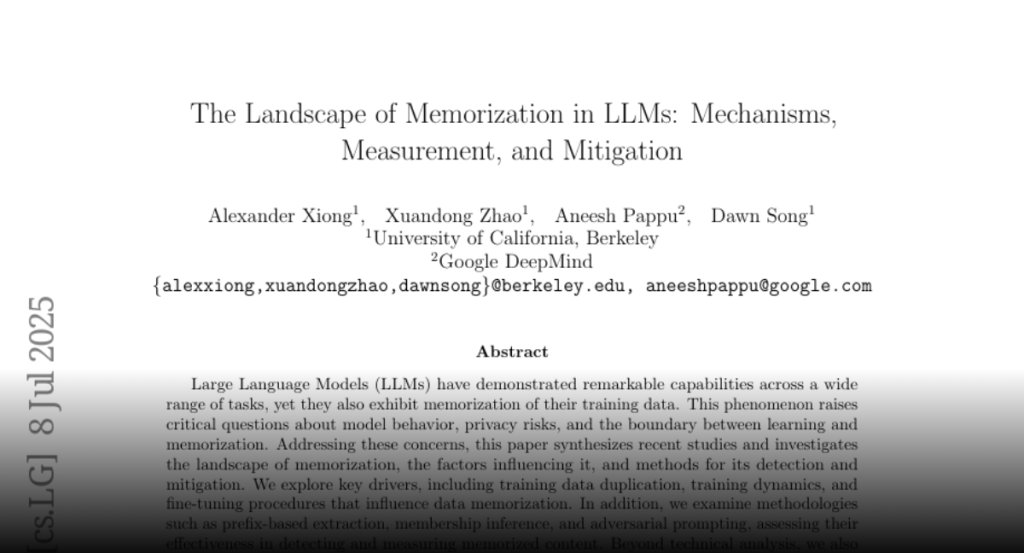The paper reviews recent studies on memorization in Large Language Models, exploring factors that influence memorization, detection methodologies, and mitigation strategies, while addressing privacy and ethical implications.
Large Language Models (LLMs) have demonstrated remarkable capabilities across
a wide range of tasks, yet they also exhibit memorization of their training
data. This phenomenon raises critical questions about model behavior, privacy
risks, and the boundary between learning and memorization. Addressing these
concerns, this paper synthesizes recent studies and investigates the landscape
of memorization, the factors influencing it, and methods for its detection and
mitigation. We explore key drivers, including training data duplication,
training dynamics, and fine-tuning procedures that influence data memorization.
In addition, we examine methodologies such as prefix-based extraction,
membership inference, and adversarial prompting, assessing their effectiveness
in detecting and measuring memorized content. Beyond technical analysis, we
also explore the broader implications of memorization, including the legal and
ethical implications. Finally, we discuss mitigation strategies, including data
cleaning, differential privacy, and post-training unlearning, while
highlighting open challenges in balancing the minimization of harmful
memorization with utility. This paper provides a comprehensive overview of the
current state of research on LLM memorization across technical, privacy, and
performance dimensions, identifying critical directions for future work.

